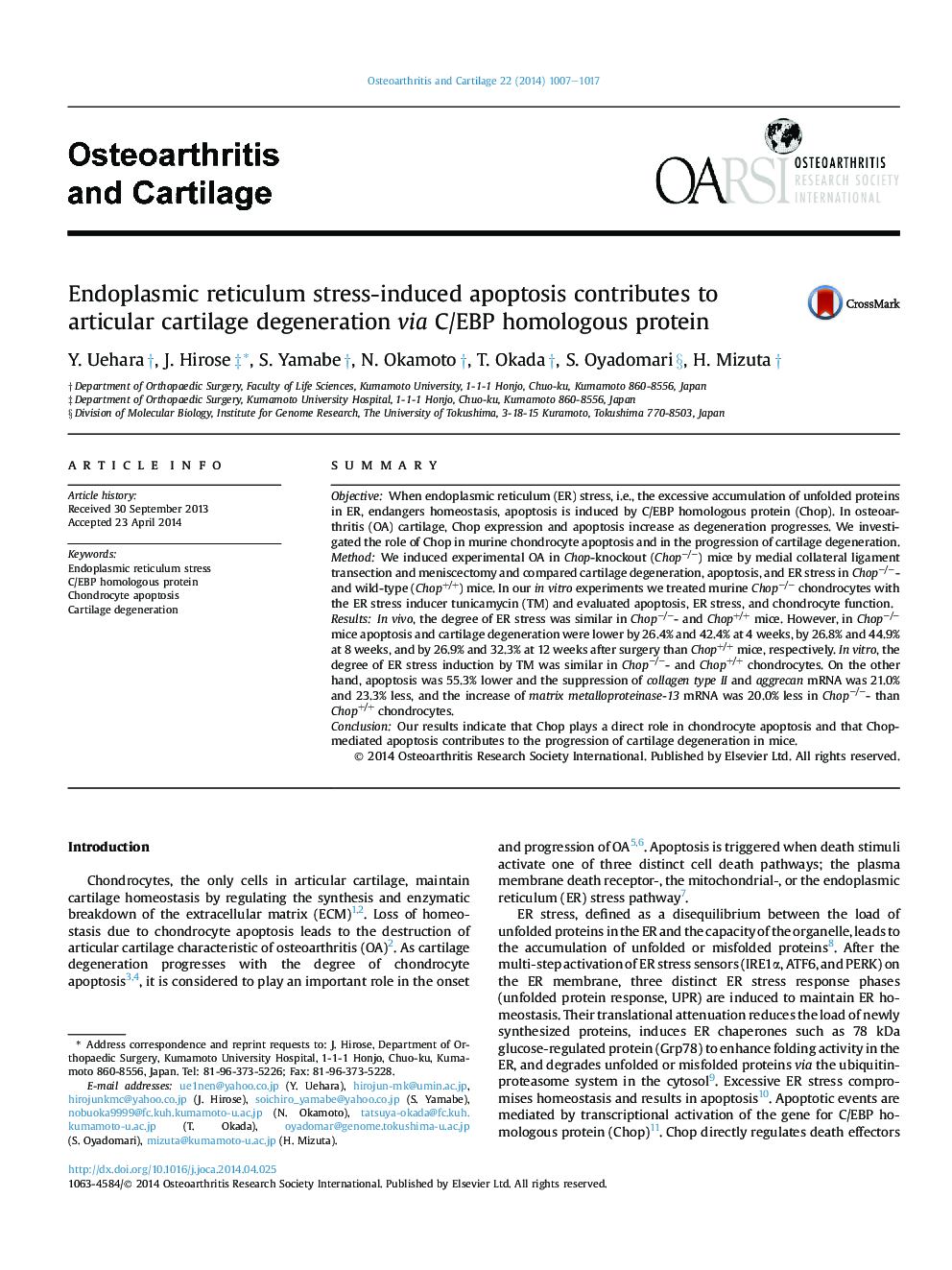| Article ID | Journal | Published Year | Pages | File Type |
|---|---|---|---|---|
| 3379380 | Osteoarthritis and Cartilage | 2014 | 11 Pages |
SummaryObjectiveWhen endoplasmic reticulum (ER) stress, i.e., the excessive accumulation of unfolded proteins in ER, endangers homeostasis, apoptosis is induced by C/EBP homologous protein (Chop). In osteoarthritis (OA) cartilage, Chop expression and apoptosis increase as degeneration progresses. We investigated the role of Chop in murine chondrocyte apoptosis and in the progression of cartilage degeneration.MethodWe induced experimental OA in Chop-knockout (Chop−/−) mice by medial collateral ligament transection and meniscectomy and compared cartilage degeneration, apoptosis, and ER stress in Chop−/−- and wild-type (Chop+/+) mice. In our in vitro experiments we treated murine Chop−/− chondrocytes with the ER stress inducer tunicamycin (TM) and evaluated apoptosis, ER stress, and chondrocyte function.ResultsIn vivo, the degree of ER stress was similar in Chop−/−- and Chop+/+ mice. However, in Chop−/− mice apoptosis and cartilage degeneration were lower by 26.4% and 42.4% at 4 weeks, by 26.8% and 44.9% at 8 weeks, and by 26.9% and 32.3% at 12 weeks after surgery than Chop+/+ mice, respectively. In vitro, the degree of ER stress induction by TM was similar in Chop−/−- and Chop+/+ chondrocytes. On the other hand, apoptosis was 55.3% lower and the suppression of collagen type II and aggrecan mRNA was 21.0% and 23.3% less, and the increase of matrix metalloproteinase-13 mRNA was 20.0% less in Chop−/−- than Chop+/+ chondrocytes.ConclusionOur results indicate that Chop plays a direct role in chondrocyte apoptosis and that Chop-mediated apoptosis contributes to the progression of cartilage degeneration in mice.
